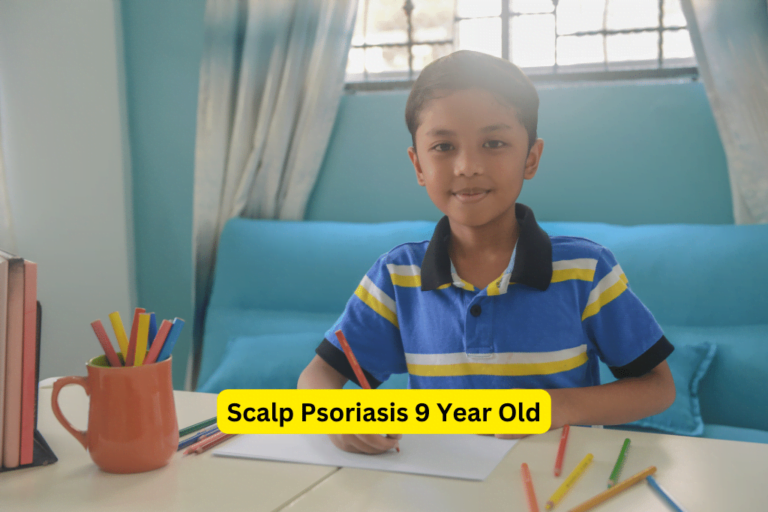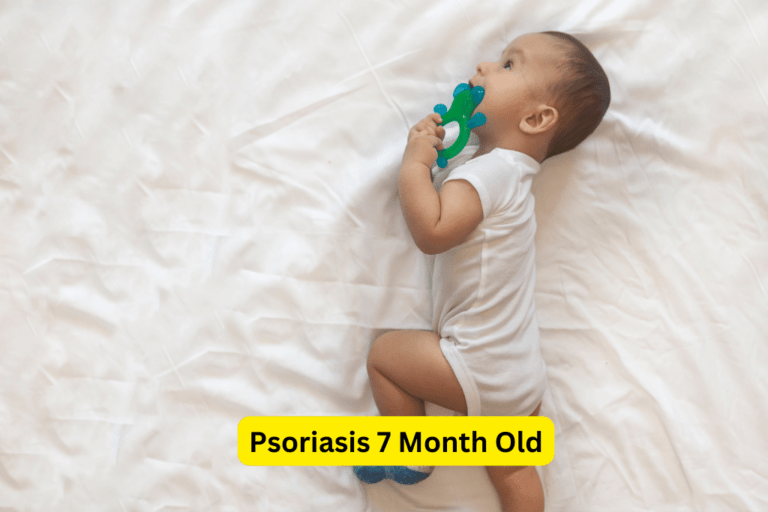Managing Childhood Psoriasis: Expert Tips for Parents of 9-year-olds
Psoriasis Enfant 9 Ans
Psoriasis is a chronic skin condition that can affect individuals of all ages, including children. While it is commonly associated with adults, psoriasis in children, as young as 9 years old, is not uncommon. Understanding the causes, recognizing the symptoms, and exploring treatment options is crucial in managing this condition effectively. Early diagnosis and treatment can significantly improve the quality of life for children with psoriasis.
Causes of Psoriasis in 9-Year-Olds
Psoriasis is a multifactorial disease, meaning it is influenced by a combination of genetic, environmental, and immunological factors. In children, there are three primary underlying causes:
- Genetic factors and family history: Children with a family history of psoriasis are more likely to develop the condition. Certain genes have been identified as contributing to the development of psoriasis, but it is important to note that not all individuals with these genes will develop the disease.
- Environmental triggers: Factors such as infections, stress, injuries to the skin, and certain medications can trigger psoriasis flare-ups in children. Identifying and managing these triggers can help prevent or minimize symptoms.
- Autoimmune response and immune system dysfunction: Psoriasis is an autoimmune disease, which means the immune system mistakenly attacks healthy cells, leading to inflammation and the rapid turnover of skin cells. In children with psoriasis, the immune system’s dysfunction is a key factor in the development and progression of the condition.
Identifying Symptoms in Children
Recognizing the symptoms of psoriasis in children is essential for early diagnosis and treatment. The most common signs to look out for include:
- Red, raised patches of skin: These patches are often covered with silver-white scales and may appear on various areas of the body, such as the scalp, elbows, knees, and lower back.
- Itching and discomfort: Psoriasis patches can be itchy and may cause discomfort or pain, particularly when they crack or bleed.
- Differences between psoriasis in children and adults: Psoriasis in children can sometimes be mistaken for other skin conditions, such as eczema or ringworm. Consulting a healthcare professional is important for an accurate diagnosis.
- Emotional and psychological impact: Psoriasis can have a significant impact on a child’s emotional well-being. They may experience low self-esteem, embarrassment, and social isolation. Providing emotional support is crucial in helping children cope with the challenges of psoriasis.
Diagnosis and Medical Evaluation
If you suspect your child may have psoriasis, it is recommended to seek professional medical advice. A healthcare professional will typically perform the following steps:
- Physical examination and medical history: A thorough examination of the affected skin and a detailed medical history can help in diagnosing psoriasis.
- Diagnostic tests and procedures: Sometimes, a healthcare professional may perform a skin biopsy or order laboratory tests to confirm the diagnosis and rule out other possible conditions.
Treatment Options for Children with Psoriasis
Treating psoriasis in children requires a comprehensive approach to manage symptoms and minimize flare-ups. The following treatment options may be considered:
- Topical treatments: These include creams, ointments, and lotions that are applied directly to the affected skin. Topical treatments can help reduce inflammation, relieve itching, and promote the healing of psoriasis patches.
- Phototherapy: Phototherapy involves exposing the skin to controlled amounts of natural or artificial ultraviolet light. This treatment option is generally safe for children and can effectively manage psoriasis symptoms.
- Systemic medications: In severe cases or when other treatments haven’t been successful, a healthcare professional may prescribe systemic medications, such as oral or injectable medications. These medications work throughout the body to decrease inflammation and control the immune response.
- Alternative and complementary therapies: Some families may opt for complementary therapies, such as acupuncture, herbal remedies, or dietary changes. These should be discussed with a healthcare professional before implementing them.
Lifestyle Management and Coping Strategies
In addition to medical interventions, certain lifestyle modifications and coping strategies can help children manage their psoriasis:
- Healthy skin care routine: Regularly moisturizing the skin, using mild soaps, and avoiding harsh products can help keep the skin hydrated and prevent flare-ups.
- Triggers management: Identifying triggers and taking steps to avoid them can help reduce the frequency and severity of psoriasis flare-ups. Triggers may include stress, infections, cold weather, or certain foods.
- Emotional support: Encouraging open communication, fostering a positive self-image, and providing support and understanding can help children manage the emotional impact of psoriasis.
Communicating with Healthcare Providers and Educating Others
Building a strong relationship with healthcare providers is crucial in effectively managing your child’s psoriasis. It is important to:
- Communicate openly and honestly: Share your concerns, ask questions, and actively participate in the decision-making process regarding your child’s treatment plan.
- Advocate for your child’s needs: Be proactive in ensuring that your child receives appropriate care at school, camps, and other settings. Educate teachers, caregivers, and friends about psoriasis to create a supportive environment for your child.
Support Networks and Resources
Connecting with other families affected by childhood psoriasis can be immensely helpful. Consider:
- Online support communities and forums: Joining online communities can provide a space to share experiences, seek advice, and find emotional support from others who understand the unique challenges of managing childhood psoriasis.
- Educational resources and organizations: Seek reliable educational resources, such as trusted websites or organizations specializing in childhood psoriasis. These resources can provide valuable information about the condition, treatment options, and support networks.
Promising Research and Future Treatment Options
Ongoing research in psoriasis continues to explore new treatment options specifically for children. Some promising areas of research include:
- Recent advancements in psoriasis research: Scientists are studying the underlying mechanisms of psoriasis, which may lead to the development of more targeted therapies in the future.
- Potential breakthroughs in pediatric psoriasis treatments: Researchers are investigating novel treatments specifically tailored for children with psoriasis, taking into account their unique physiological and psychological needs.
Conclusion
Psoriasis in children is a chronic condition that requires proper management to reduce symptoms and improve the child’s quality of life. Understanding the causes, identifying symptoms, and seeking appropriate medical care are vital steps for parents and caregivers. By implementing effective treatment strategies, promoting a healthy lifestyle, and providing emotional support, parents can help their child thrive despite the challenges posed by psoriasis.
"Have You Seen Mike Walden's new holistic acne System yet? It's called "Acne No More" I've read the whole thing (all 223 pages) and there's some great information in there about how to naturally and permanently eliminate your acne without drugs, creams or any kind of gimmicks. I highly recommend it - it's very honest and straightforward without all the hype and b.s. you see all over the net these days. Here's the website where you can get more information:
Click Here -->AcneNoMore









